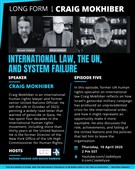[The following open letter was written by Moroccan journalist Hamza Mahfoud on 11 November 2014, in response to King Mohammed VI`s speech marking the anniversary of the Green March. The open letter was originally published in Arabic on Huna Sotak and translated to English by Abdellah Laaraj. Since its publication, the open letter has been widely disseminated on social media, drawing a wide range of responses.]
Dear King,
I am writing regarding the Sahara after having watched your speech last Thursday. I would like to present the point of view of a Moroccan citizen who wished he were in a stronger position to defend his country. The reality is that he found himself split between the overwhelming desire to do so and the simultaneous constraints. How can anyone possibly defend his nation when it is ruled by authoritarianism, governed by a regime that fails to respect basic human rights, and is dedicated to perpetuating systematic favoritism and internal, pervasive corruption?
Forgive me for responding to your following words: "Enough exaggerations about Morocco and enough misuse of our fundamental rights and freedoms to conspire against our nation." You are suggesting once again that defending human rights and freedom of speech, especially with those that hold differing views, is "national treason" or, at the very least, aiding and abetting it.
I think, with all due respect, that our differing positions on the Western Sahara is not a crime. But rather, I believe that the continuous consolidation of power and wealth in one hand, your own royal one, is the crime.
To invoke human rights in the defense of those who hold a different point of view is not a crime. To continue violating those same rights and justifying each one of your actions with new reasons, while at the same time failing to put the responsible parties on trial and, instead, providing them with impunity, is indeed the crime.
No one can argue that there is a dictatorship in Algeria, but I can assure you that the best course of action on your part to win the argument is not empty rhetorical exchanges with your opponent, but rather that you finally enter the global club of democratic nations, and refrain from mixing money and power. Today, the Western Sahara is demanding independence and tomorrow we do not know how many regions of the country will be seeking to break away should the palace`s unjust rule continue.
It seems a strange statement to make when Your Highness claims that the disputed Western Sahara costs Morocco seven dirhams for every one dirham of revenue it generates. How can someone from Eastern Sahara absorb this kind of assertion? The people in the non-disputed lands who are both extremely loyal and patriotic live under frail infrastructures and are marginalized. Why should they not call for secession to get your attention rather than remain under your control, suffering, while witnessing their Western neighbors enjoy their privileges?
How can you convince all the citizens of Morocco`s regions that the country is for everyone, when most of them were not granted the fundamental human conditions required in order to live in dignity. Some of them were forced to immigrate, the rest were swept along in the tide of abject poverty. You did quote your grandfather with regard to those who are jealous of Morocco, but you did not quote him when he said: "I am amazed that he who cannot afford his daily bread has not already appeared with his sword wielded at the people."
Are we to understand from your talk that if the Sahrawis accept the autonomy proposal, it means that the huge expenditures will be eliminated and that they will be treated just like everyone who believes in and supports national unity?
Forgive me for asking too many questions, but it is a fun game that Your Majesty began ever since you asked "Where is the wealth?" Moroccans screamed out that it is all in your pocket and your friends` pockets; the remaining balance of wealth sits in the pockets of other individuals who are immune, people within your inner circle. They all amassed that wealth unethically through profiteering and the exploitation of their positions of power and influence, yet no one heard our screams.
From past visits to various world cities where decisions are made, whether in Washington, New York, Paris, or Brussels, I assure you, Your Majesty, that there are many Moroccans and friends of Morocco who are high-level professionals and scholars, seeking a firm and sound project to defend. Instead, they found nothing except for a continuation of authoritarianism, human rights abuses, and financial and political corruption. The result is that all these failings pushed them further away and dissuaded them from getting involved with Morocco.
Forgive me for informing you that your words "Morocco will stay in its Sahara until God inherits Earth and who is on it" are a fallacy, Your Highness. We have no idea whether or not Morocco will exist a hundred years from now as "injustice warns of the ruin of nations," according to our forefather Ibn Khaldun. I do not foresee an enduring Morocco under these conditions: tolerance and coexistence for Moroccans are not compatible with your unjust system of governance.
May peace be with you.
![[Image of a portrait of King Mohammed VI in Casablanca. Image by slettvet/Flickr.]](https://kms.jadaliyya.com/Images/357x383xo/ScreenShot2014-11-13at2.13.22PM.png)

















